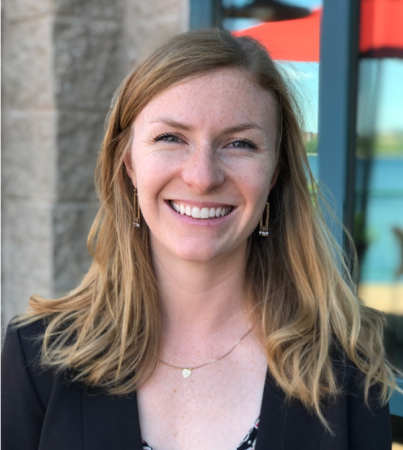Career development funding has been awarded to Erin Abu-Rish Blakeney PhD, RN by the National heart, Lund, and Blood Institute for "Implementation and Sustainment of Team-Based Practice Transformation to Improve Heart Failure Care and Outcomes."
Abstract:
Project Summary
Heart failure (HF) is a costly and complex health condition affecting millions of Americans. HF care is often fragmented which negatively affects quality, safety, and patient-centered outcomes. Structured Interprofessional Bedside Rounds (SIBR) is a model of care developed to bring interprofessional team members together with patients and families using a structured format to collaboratively arrive at a daily care plan. The SIBR model is characterized by four core components: an interprofessional approach, utilization of a rounding structure, intentional patient and family engagement, and development of a shared daily care plan. A growing body of evidence associates SIBR implementation with improvements in team and patient outcomes. The hypothesized mechanism through which SIBR operates is that having a predictable structure leads to improvements in communication, fewer gaps in care, and more consistent utilization of evidence-based approaches. These changes are thought to lead to improvements in patient outcomes such as, length of stay, readmission rates, patient-centeredness of care, and safety/adverse events. Despite frequent improvements in outcomes following SIBR implementation, an evidence gap exists as to the role that fidelity (adherence) to the SIBR model plays in how and why this model works and the extent to which outcomes can be further improved if fidelity is higher.
To address this knowledge gap, this proposal leverages a timely opportunity to study SIBR fidelity and its relationship to care and outcomes among patients with advanced HF at the University of Washington Medical Center, where a SIBR model has been the standard of care for 4+ years. The central hypothesis is that higher- fidelity SIBR will be associated with better outcomes. To test this hypothesis, I will carry out a prospective cohort study to achieve three specific aims: (1) identify associations between SIBR fidelity and patient outcomes, (2) determine the extent to which SIBR fidelity predicts time to initiation and completion of an evidence-based “Advanced HF Work-Up Pathway”, and (3) examine patient and family experiences of care quality and safety in the context of higher- and lower- fidelity SIBR. These aims will lay the groundwork for an initial multi-site R01 to study SIBR in practice and a future R-level grant to implement and evaluate an optimized SIBR model. Through this work, I will obtain formal training in HF outcomes research, advanced implementation science study designs, and patient-oriented clinical research methods.
I will be mentored by an expert team of NHLBI-funded researchers, Bryan Weiner (primary mentor, implementation science), Randall Curtis (communication and palliative care), Brenda Zierler (interprofessional collaboration and clinical pathways), and Kevin O'Brien (advanced heart failure care). The combination of mentorship, coursework, and experiential learning will position me to become an independent investigator using scientifically rigorous approaches to evaluate the implementation and outcomes of evidence-informed patient- and family-centered models of care.
Public Health Relevance Statement
Heart failure (HF) care is costly, complex, and often fragmented which impacts quality of care, safety, and other patient outcomes. Structured interprofessional bedside rounds (SIBR)—a model that was developed to bring together health professionals and patients using a structured format to collaboratively arrive at a daily plan of care—has been associated with improvements in many care team and patient outcomes but model fidelity (adherence) varies. Rigorous study of SIBR fidelity when analyzing impacts on care and outcomes is needed to determine whether and how SIBR can reliably lead to improvements.
Sponsor Award Number: 1K23HL144910-01A1
TB PrEP – Integrating HIV prevention with TB household contact evaluation
Jennifer Ross, MD, MPHContinue reading→
Addressing Clinician Bias to Improve Equitable Implementation of Evidence-Based Practice
Freda Liu, PhD & Aaron Lyon, PhDContinue reading→









